23 Biggest Parenting Mistakes, According to Child Psychotherapists
Sometimes, it's mom and dad who need the timeout.

It's no secret that parenting is one of the most difficult jobs out there. And no matter how conscientious and careful a parent may be, they're bound to make mistakes here and there. While there's no set of instructions for proper parenting—as every child, and family, is different—there are certain behaviors a parent can, and should, work to avoid. We've spoken to a host of family experts to pinpoint the most frequently-committed parental sins. So read on, and if you find yourself identifying with any of the following behaviors, don't be too hard on yourself. The important thing about making mistakes is learning from them.
1
Not leading by example

A parent may have the best advice in the world for their kids—tips for how they should treat others, suggestions for how to comport themselves when they're struggling, or heartfelt appeals that they stay away from cigarettes. But it does little good if they simply tell their kids to do these things, rather than showing them through their own behavior.
"All too often parents tell their kids what to do instead of modeling the behavior," says Dr. Richelle Whittaker, LSSP, LPC-S, an educational psychologist, mental health therapist, and parent educator at Providential Counseling & Consulting Services, PLLC in Houston, Texas. "Unfortunately, kids tend to mirror their parents' behavior more than they listen to what they tell them. If parents want their children to engage in healthy behaviors, such as treating others with kindness, model the behavior for them."
2
Fighting their children's battles

A major part of growing up is learning that actions have consequences. It helps a child learn when something they are doing has a negative impact on others, or leads to less-than-desirable outcomes. But, often, parents—who, to be fair, are seeking to protect their kids—will fight their children's battles for them, dealing with the consequences themselves or finding a way to help their child avoid having to face them.
"Children grow up to be adults and it's important they learn early that there are consequences for their choices," says Whittaker. "Most parents want their children to grow up to become independent, self-sufficient adults, but this will only happen if parents give their children the room to face the consequences of their choices and actions."
3
Skimping on quality time

"Children crave their parent's attention even when their attitude doesn't reflect it," says Whittaker. She advises "spending 10 to 20 minutes of quality time every day with your child. [That] lets them know they're important and not only that you love them, but enjoy spending time with them."
The key word here is "quality." Parents should spend these minutes giving their kids their full attention—not sitting in front of the TV or keeping an eye on them while handling work calls.
4
Letting technology take over

Technology is an essential part of our lives, from providing us with entertainment to helping us handle daily tasks. But too often, parents can let technology take over—and it can come to dominate the time spent with their kids, too.
"We all want some down time, to play our games, watch Netflix, or simply mindlessly browse on our smart devices," says Priyanka Upadhyaya, Psy D., a private practice psychologist in New York City and New Jersey. "But when it comes to spending time with your kids, leave technology outside. Create memories through spending quality time by doing various activities, talking and connecting with each other. Children won't remember what latest phone you got them. They will remember how they felt when they spent time with you."
5
Projecting your goals onto your kids
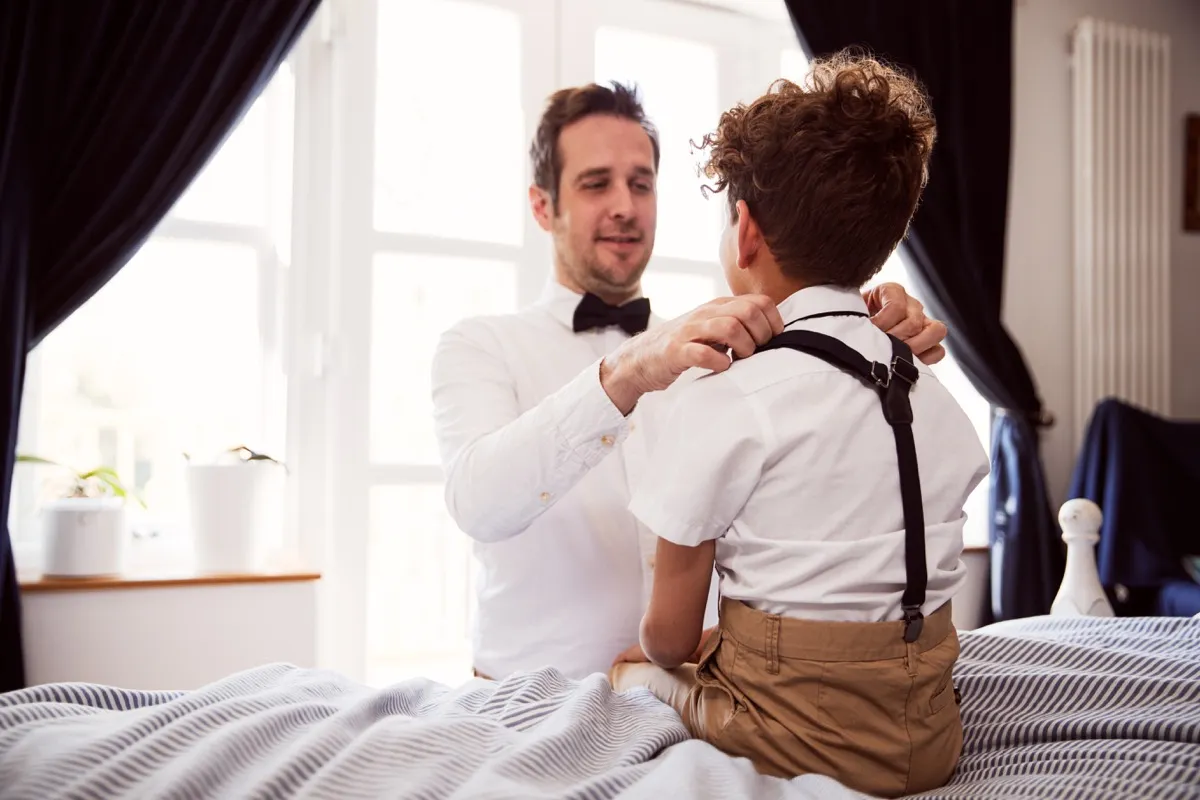
Parents want what's best for their kids, but sometimes they might lose perspective of the fact that what "best" means for them is what's "best" for their kids. Whether it's career aspirations, sports and extracurricular activities, or social interactions, parents can push their kids to do the things they wish they did in their youth, instead of leaving their kids the space to figure out their own wants.
"Often we start thinking about our kids as our 'second chance' to succeed in accomplishing those goals," says Lucia Giovannini, a doctor of psychology and counseling and the author of A Whole New Life. "This makes kids feel torn between what they would like to do and what their parents want them to do. When you want to give your child advice about making life choices, just check with yourself to make sure you are setting your own goals aside and being present for him or her instead."
6
Or passing on phobias

Just as parents can project their desires on to their kids, they can do the same with their fears. "Parents will inadvertently create fears or anxiety in their children by giving extreme caution or demands to avoid certain animals or places," explains psychologist Dr. Alicia Hodge, who's based in Washington, D.C. "Since children look to their parents to model emotions and information about safety, extreme reactions may garner a sense of fear about specific objects or the world in general."
7
Using a "one-size fits all" approach

"Too often, we make assumptions about supportive techniques and environments without asking if they are tailored to the specific needs of the child," says Mona M. Delahooke, a pediatric psychologist in California and author of Beyond Behaviors. She urges taking a more personalized approach in handling kids: figuring out a child's individual quirks and tailoring discipline and rewards to best fit those particular needs.
"This idea of personalizing approaches is now popular in the medical field," says Delahooke. "Providing generic techniques, even if they are helpful to some children, is often insufficient for children who have difficulties with emotional and behavioral regulation. Understanding each child's individual differences helps us tailor our relational and therapeutic approaches."
8
Neglecting their partner

While children are a special addition to a relationship, they're not a replacement for it. And one of the most common mistakes parents make is "forgetting to nurture their relationship with their partner and just focusing on the kids," says Heidi McBain, a licensed marriage and family therapist in Flower Mound, Texas. The extra attention the child gets will pale in comparison to the effect that a healthy parental relationship could have on that child.
9
Not making enough "me" time

One of the best things a parent can do for their children "is to schedule in time for themselves each and every day," according to McBain. That "me" time allows parents to avoid getting overwhelmed and frustrated by the demands of parenting. While it may seem counterintuitive, a parent needs to take care of themselves before they can effectively take care of others.
10
Not expanding a child's freedom as they age

Like most things, personal freedom gets easier to handle with practice. That's why it's crucial to give children increasing room for independence as they age. "While it's understandable that at an early age you would set boundaries," it's important to let those boundaries expand over time, says Dr. Vinay Saranga, M.D., child psychiatrist and founder of Saranga Comprehensive Psychiatry in Apex, North Carolina. Though doing so may initially cause fear for both parties, letting children "slowly build their independence" is more effective than expecting them to learn it all at once in adulthood.
11
Reacting in the moment

Because children are reactive, "it's sometimes easy to react almost immediately" to their behavior during a conflict, says Saranga. However, it's important to remember that children are also impressionable, and always watching. Instead of displaying a reaction of "anxiety, anger, or some insecurity," Saranga says, take the time to "think before you react," and consider the consequences.
12
Doing everything for their kids

Of course parents feel responsibility for their child's well-being, but that shouldn't translate into catering to their child's every whim. "It's fine to want to help them to some degree, but doing everything for them removes appreciation," says Saranga, in addition to "build[ing] really bad expectations."
13
Not letting kids make mistakes

"Every parent wants the best for their kids and wants to protect them," says Saranga. But sometimes it's important to let them fail. In the long-term, Saranga says, the best way to make sure they're able to handle mistakes—and heal from those bumps and bruises that come with them—is to let them "dust themselves off and come back" from any slip-ups.
14
Not listening to their kids
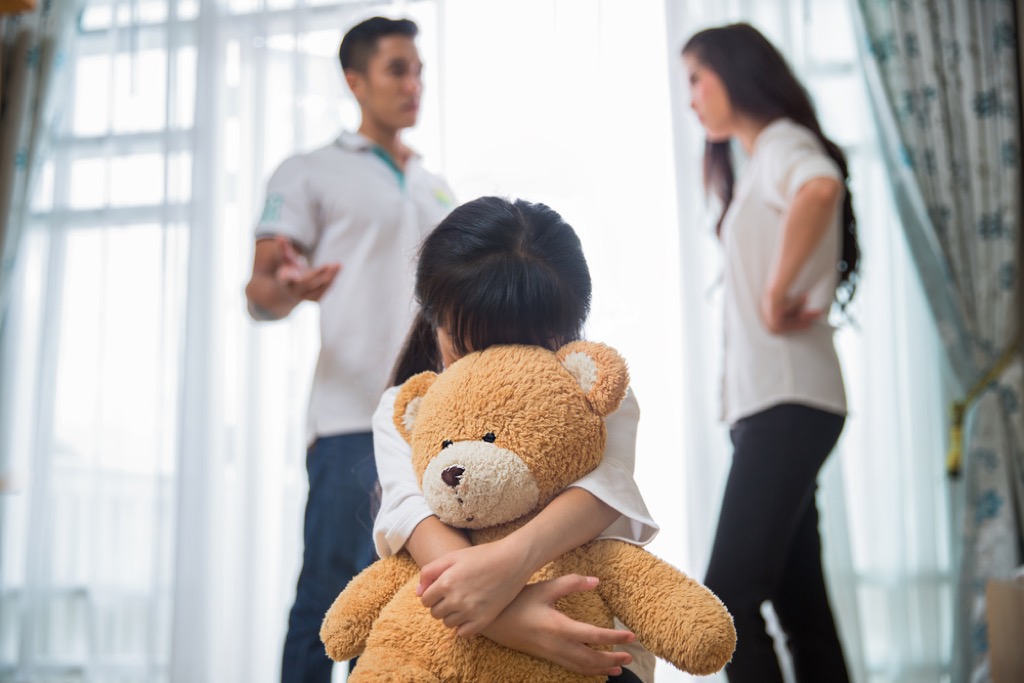
"Most of the time, kids just want a voice," says Saranga. That means, taking the time to listen to what they have to say is a crucial part of making children feel valued. While their thoughts may be disagreeable, Saranga notes, "at least give them the time of day." And if something "is really bothering them, take it seriously," he urges—no matter how trivial it may seem.
15
Yelling

"Yelling is never helpful," says Dr. Lori Whatley, a licensed marriage and family therapist. While it may feel like raising the volume can help to drive home a point, it only "cause[s] anxiety," she notes. In addition to worsening the disagreement at hand, it also "does nothing for the parent-child relationship."
16
Expecting perfection
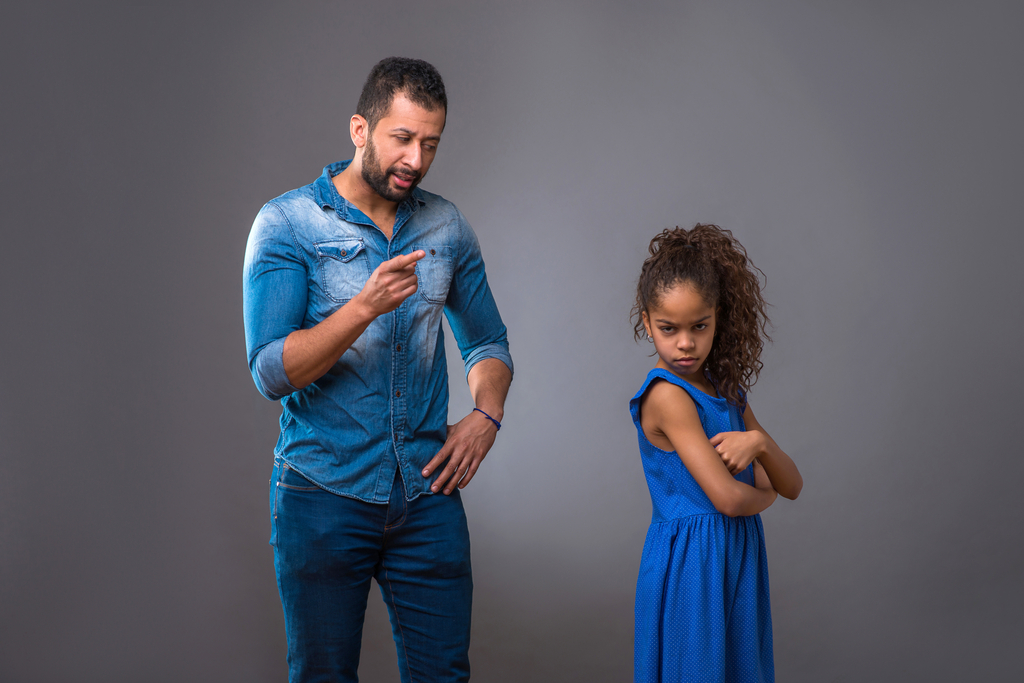
"Parents who expect perfection from their kids will be sorely disappointed," says Whatley. And that's simply not a realistic goal. Plus, doing so "can cause their child to become frustrated and anxious," making them more likely to avoid trying new things rather than "miss the mark the parent pushes for." As a result, the child will begin to feel as if they are a failure, resulting in seriously low self-esteem.
17
Giving a kid everything they ask for
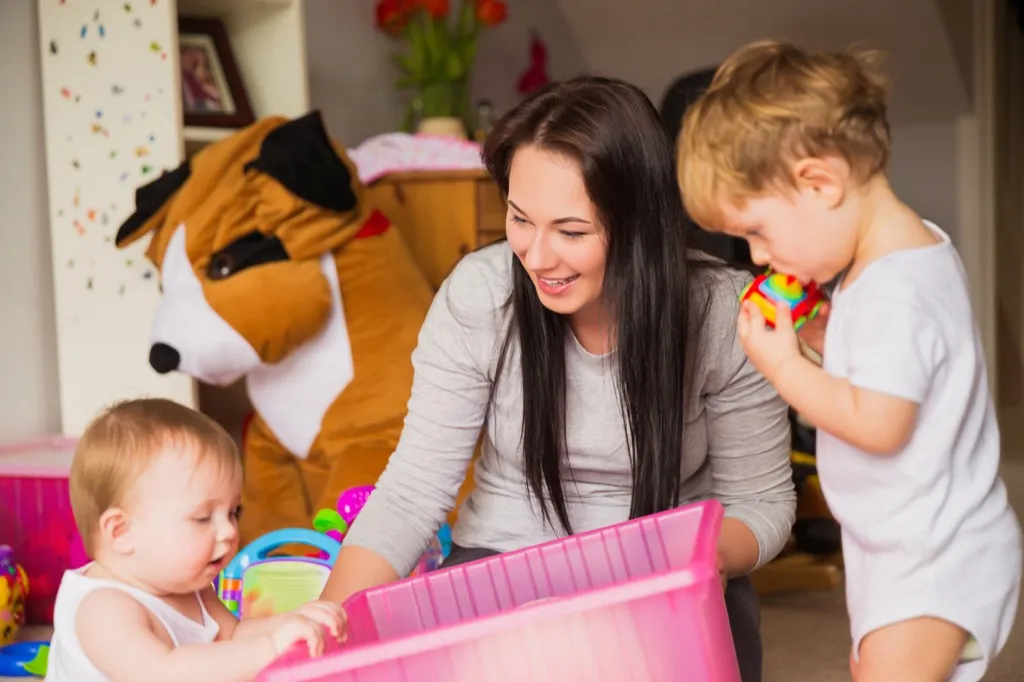
"When a child asks you to buy a new toy, you might want to comply and make them happy," says Saranga. And while it's okay to do so every once in a while, he cautions, "don't make it a regular thing." It's important to teach children the value of working toward the things they want, not simply being handed them.
18
And giving into their demands

If a child doesn't get what they want, they often try, then try again, and again, kicking off an endless cycle. However, it's important that parents don't give in to their demands just to help "create connection," says Whatley. If the child is angry, so be it; giving in teaches children that they can "manipulate to get what they want," she notes.
19
Not discussing violence in the news
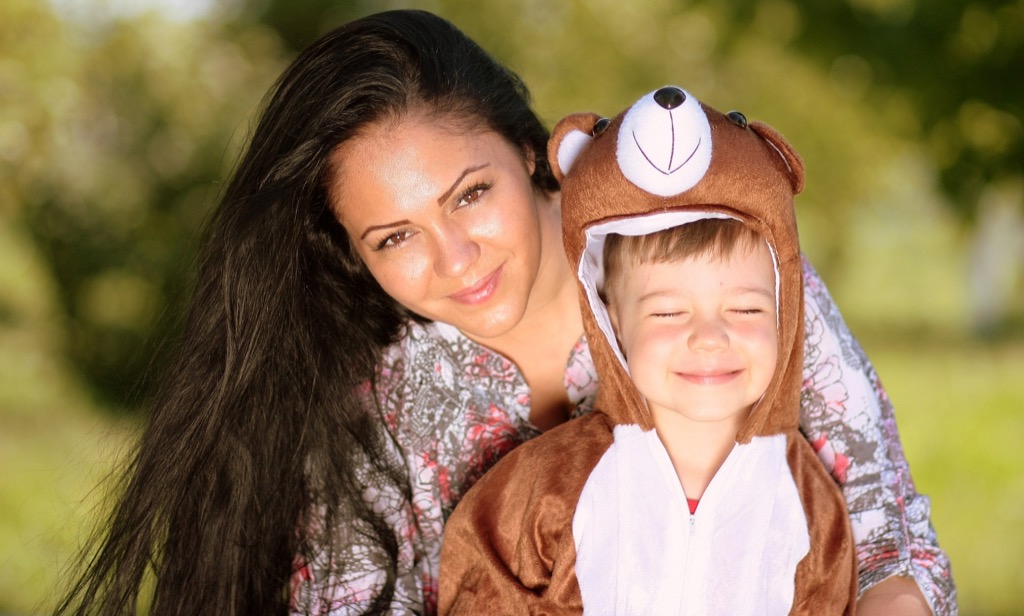
One common mistake parents make is not talking to their kids about "scary things in the world," says Carole Lieberman, M.D., author of Lions and Tigers and Terrorists, Oh My! How to Protect Your Child in a Time of Terror. She calls this "the 'bird and the bees' talk for the 21st century." While parents would like to think kids will never come into contact with gun violence, for example, this is a "rationalization parents make to avoid the subject," thinking it will "scare their kids." Instead, it's a good idea to engage the subject as it's "a fact of life, too," says Lieberman.
20
Being too skittish to discuss sex

Oftentimes when a child asks their parents about sex, "we get so caught up in our anxiety that we don't give them the information they're looking for," says Jill Whitney, a licensed marriage and family therapist. This teaches a child that they can't look to their parents for answers, meaning they'll search for less reputable sources, Whitney warns. In addition, if they feel they've done something wrong by asking, they "may start to become embarrassed or ashamed about their bodies or sexuality," says Whitney, "and that shame can interfere with eventual sex lives."
21
Relying too much on baby equipment

Dr. Joni Redlich, a board-certified clinical specialist and pediatric physical therapist in New Jersey, says she has seen "an increase in developmental delays, flat spots on heads, and torticollis (head tilts)," due to the overuse of baby equipment. Instead of transporting a child from a car seat to a swing to a bouncy seat, parents should allow children time "on the floor" or in an "old fashioned playpen." If a parent does feel the need to utilize baby equipment, she advises to do so sparingly.
22
Disciplining inconsistently
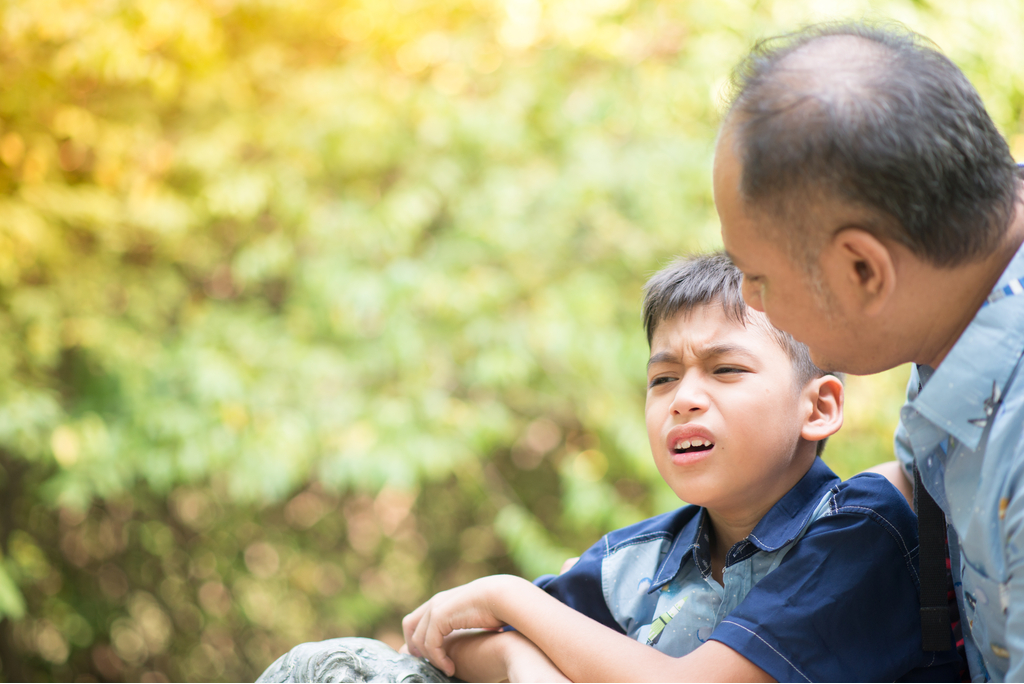
Children respond to clear, consistent boundaries—and also have a keen sense for when they can cross those boundaries and get away with it. When a parent tells their kid they can't have ice cream before dinner, but then relents once the kid asks enough, the kid will make a habit of pushing the parent as far as possible.
"Kids learn more from our actions than our words so it's important that we keep the two congruent," says Connecticut-based psychotherapist Victoria Shaw. "If you tell your child, 'Bedtime is at 7:30 p.m.—no exceptions,' then you best be prepared to follow through. Kids feel safest when expectations are consistent and they know what to expect."
23
Or only disciplining with words

When it comes to instilling the right behavior in kids, actions speak far louder than words. That's true in modeling the right behavior for kids, but it's also true when it comes to telling kids what not to do.
"Parents should avoid lecturing their children," says Shaw. "When disciplining your child, it is important to keep your words to a minimum. Anything more than a few sentences and your kids will most likely tune you out." According to Shaw, the more a parent talks, the more opportunity there is for the child to misinterpret their words or conclude that whatever they are saying is open for negotiation. That's why it's better to be clear and consistent and let your actions speak for themselves. And for more sage mom-and-dad wisdom, learn all about the 30 Worst Parenting Mistakes Everyone Makes.
To discover more amazing secrets about living your best life, click here to follow us on Instagram!





















